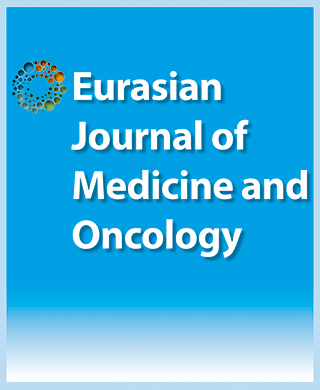

Emotional Intelligence in Female Children with PTSD After Sexual Abuse
Esra Demirci11Department of Child and Adolescent Psychiatry, Erciyes University Faculty of Medicine, Kayseri, Türkiye,
Objectives: The aim was to investigate the effects of child sexual abuse on emotional intelligence in children with posttraumatic stress disorder (PTSD). Also, there is no study assessing the effects of incest on emotional intelligence in children with PTSD after sexual abuse. The current study aimed to assess the effects of incest on emotional intelligence. Methods: This study included 30 female children with sexual abuse, 20 female traffic accident victims with PTSD, and 25 female healthy volunteers as controls. All participants in the study were assessed with the Toronto Alexithymia Scale (TAS-20) and the Difficulties in Emotion Regulation Scale (DERS) and the reading mind from eyes test (RMET) for children. Results: It was found that the TAS-20 total score was significantly higher in the CSA victims than in controls. Difficulty identifying feelings and difficulty describing feelings subscales scores were higher in the incest group. When the groups were compared regarding total DERS scores, it was found that it was found that the DERS total scale was significantly higher in the CSA victims than in controls while no difference was detected between the CSA victims without incest and the incest group. RMET score was significantly lower in the incest group than in the CSA victims without incest. Conclusion: Sexual abuse disrupts emotional processing in female children. It is important to consider the clinical fea tures of emotion processing that could contribute to PTSD treatment in children with sexual abuse. Keywords: Alexithymia, child sexual abuse, emotion regulation, emotion recognition
Cite This Article
Demirci E. Emotional Intelligence in Female Children with PTSD After Sexual Abuse. EJMO. 2023; 7(4): 306-311
Corresponding Author:



